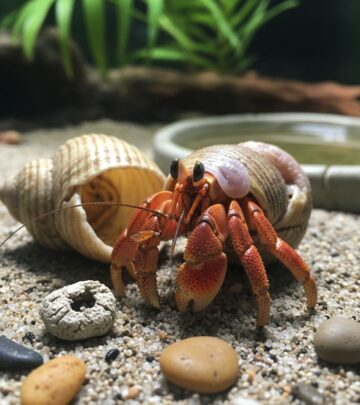Constipation Home Remedies for Infants: Complete Parent’s Guide
Gentle, practical remedies and essential tips for easing infant constipation, supporting your baby’s comfort naturally.

Constipation Home Remedies for Infants: A Complete Parent’s Guide
Constipation in infants is a frequent concern that can leave parents feeling helpless. With gentle interventions and informed strategies, many cases of mild constipation in babies can be managed at home, supporting comfort and digestive health. This comprehensive guide explains everything you need to know about constipation in infants, from causes and signs to safe natural remedies and prevention tips.
Table of Contents
- What is Constipation in Infants?
- Signs and Symptoms of Infant Constipation
- Common Causes of Constipation in Infants
- Home Remedies for Infant Constipation
- Foods That Help Relieve Infant Constipation
- Foods to Avoid When Baby is Constipated
- Tips for Preventing Infant Constipation
- When to Seek Medical Advice
- Frequently Asked Questions (FAQs)
What is Constipation in Infants?
Constipation in infants refers to the infrequent, difficult, or painful passage of stool. Normally, a baby’s bowel movement patterns can vary based on age, feeding type, and introduction to solids. Breastfed babies, for example, may go several days between soft stools, while formula-fed infants tend to have more regular bowel movements. Constipation is less about frequency and more about the texture and difficulty of passing stools.
Signs and Symptoms of Infant Constipation
Recognizing constipation in infants can be challenging. Look for these key symptoms:
- Fewer than three bowel movements a week (in bottle-fed babies)
- Hard, dry, or pellet-like stools
- Straining, arching the back, or crying during bowel movements
- Apparent discomfort or pain when passing stool
- Abdominal bloating or firm tummy
- Decreased appetite or feeding
- Traces of blood on stool’s surface from small anal tears
It’s important to note that infrequent stooling alone, especially in breastfed babies, isn’t always a cause for concern if the stool remains soft and the baby is otherwise content.
Common Causes of Constipation in Infants
Several factors can lead to constipation in babies, often dependent on their stage of development:
- Formula Feeding: Formula can be more difficult to digest than breast milk, sometimes resulting in firmer stools.
- Introduction of Solids: Starting solid foods may temporarily disrupt regular bowel movements.
- Insufficient Fluid Intake: Dehydration can make stools dry and hard.
- Low-Fiber Diet: Lacking fruits, vegetables, or whole grains.
- Changes in Routine: Illness, travel, or stress can also play a role.
Home Remedies for Infant Constipation
Most cases of infant constipation can be safely managed at home with gentle, natural remedies. Here’s an overview of effective approaches:
1. Tummy Massage
Gently massaging your baby’s abdomen can stimulate the bowels:
- Lay your baby on their back.
- With two or three fingers, rub the tummy in a clockwise circular motion, below the rib cage and above the hips, for 1-2 minutes.
- Do this several times a day, especially after feeds.
This method promotes movement in the intestines and may relieve discomfort effectively.
2. Bicycling Baby’s Legs
This simple exercise mimics natural movement and can help stimulate digestion:
- Place baby on their back.
- Hold their ankles and alternately flex and extend each leg as if pedaling a bicycle.
- Repeat for 1-2 minutes, 2-4 times a day.
3. Warm Bath
A warm bath relaxes the abdominal muscles and can ease discomfort:
- Fill the tub with comfortably warm (not hot) water.
- Allow your baby to soak for 10-15 minutes.
- Follow with a gentle tummy massage.
4. Offer Extra Fluids (If Age-Appropriate)
Proper hydration keeps stools soft:
- For babies under 6 months: Breast milk or formula only—consult your doctor before offering water or juice.
- For babies 6+ months: Offer a few sips (2–4 ounces) of water between meals if your baby is eating solids.
- Introduce 100% prune, pear, or apple juice (1-2 ounces daily), as these fruits contain sorbitol—a natural laxative.
5. Appropriate Dietary Adjustments
- Increase high-fiber foods (for babies eating solids): pureed prunes, pears, peaches, plums, apples (without skin), peas, and some cereals (barley, oatmeal).
- Avoid binding foods such as unripe bananas, rice cereal, and dairy until the constipation resolves.
- In breastfed babies, mothers can experiment by removing low-fiber foods from their own diet.
6. Encourage Movement
- Daily floor play, rolling over, supervised tummy time, and gentle physical activity can aid digestion—even passive movement like the bicycle exercise helps.
7. Rectal Stimulation (Use Cautiously)
- In rare situations, under pediatric guidance, rectal temperature measurement with a lubricated thermometer can sometimes stimulate a bowel movement. Regular use is not recommended as it can lead to dependency.
Do not use suppositories, enemas, or over-the-counter laxatives without explicit guidance from your child’s healthcare provider.
Foods That Help Relieve Infant Constipation
Introducing certain foods can support softer, more regular stools—especially as your baby transitions to solids:
| Food | Benefits | Suitable Age |
|---|---|---|
| Pureed prunes, pears, apples, peaches, plums | Rich in fiber and natural laxative sorbitol | 6+ months |
| Cooked peas, broccoli, spinach | Provide bulk and stimulate the colon | 6+ months |
| Barley, oatmeal, whole grain cereals | Adds fiber and softens stool | 6+ months |
| Small amounts of 100% prune, pear, apple juice | Contains sorbitol, draws water into the bowels | After 6 months |
Offer these foods gradually, ensuring your baby tolerates each new item well.
Foods to Avoid When Baby is Constipated
- Unripe bananas: Can worsen constipation.
- Rice cereal: Often binds stools, especially white rice.
- Dairy products: Cheese, yogurt, and excessive cow’s milk can be constipating, especially in toddlers.
- Low-fiber foods: White bread, refined cereals, and processed snacks add little benefit and may compound the problem.
Once constipation resolves, reintroduce these foods gradually and in balance with high-fiber choices.
Tips for Preventing Infant Constipation
- Establish a consistent feeding and sleeping schedule, as routine supports regularity.
- Encourage safe, age-appropriate physical movement (tummy time, rolling, crawling).
- Introduce new solid foods slowly, and emphasize fruits and vegetables over processed grains.
- Provide sufficient hydration—water, breast milk, or formula as appropriate for the baby’s age.
- Limit dairy intake in older babies and toddlers.
- Keep stress to a minimum; a calm environment supports healthy digestion.
When to Seek Medical Advice
While home remedies work in many cases, sometimes medical evaluation is needed. Contact your pediatrician if:
- Constipation lasts more than a week despite trying home remedies.
- Your baby has vomiting, persistent abdominal swelling, poor feeding, or continuous discomfort.
- You see blood in the stool not related to anal fissures.
- Your infant is younger than four months and has not had a bowel movement for more than three days.
- Any sudden or severe symptoms appear.
Never hesitate to consult your healthcare provider with any concerns about your baby’s digestive health.
Frequently Asked Questions (FAQs)
Q: Are infants on breast milk less likely to get constipated?
A: Yes, exclusively breastfed babies are less likely to become constipated because breast milk is easily digested and promotes softer stools. However, some breastfed babies may go several days without passing stool, which is usually normal if the baby is content and the stools remain soft.
Q: Can switching formula help if my baby has ongoing constipation?
A: Sometimes, yes. Some formulas may be harder for a baby to digest. If you suspect formula intolerance, discuss changing formulas with your pediatrician before making adjustments.
Q: Is it safe to use over-the-counter enemas or laxatives for babies?
A: No. These should never be given to infants without a doctor’s recommendation, as they may cause harm or disrupt natural bowel patterns.
Q: Does gripe water or herbal tea help infant constipation?
A: There’s limited scientific evidence to support the use of gripe water or herbal teas for constipation. It is best to avoid giving infants any remedies not specifically recommended by your pediatrician.
Q: How soon should home remedies relieve my baby’s constipation?
A: Most home remedies take a day or two to work. If there is no improvement after several days or if symptoms worsen, consult your healthcare provider.
Q: When can I offer water or fruit juice to my baby?
A: The American Academy of Pediatrics generally advises waiting until after six months before introducing water or 100% fruit juice. Until then, breast milk or formula should be baby’s only source of hydration unless your doctor recommends otherwise.
Key Takeaways for Parents
- Be patient—mild constipation is common as infants grow, especially with new foods.
- Gentle at-home measures such as tummy massage, extra fluids, and fiber-rich foods typically help resolve most cases.
- Always consult a pediatrician if you’re unsure or if symptoms are persistent or severe.
By following gentle, evidence-based home remedies and knowing when to seek help, you can support your baby’s digestive health and comfort—all with confidence.
Read full bio of Sneha Tete











